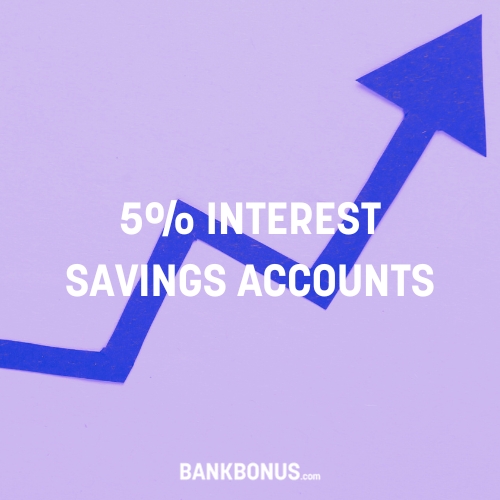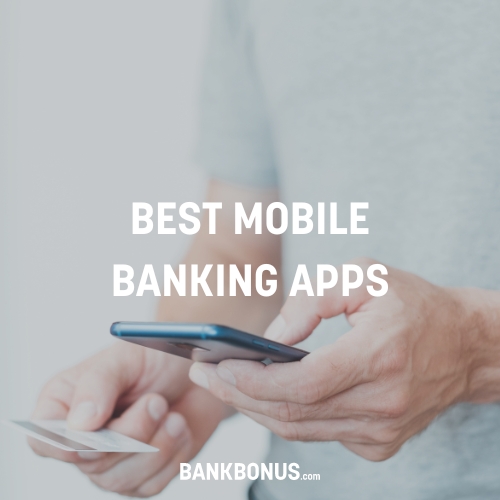Banking services tailored to the specific needs of nonprofits are steadily increasing as the number of nonprofit organizations worldwide grows. No matter the size of your nonprofit organization, managing your funds, accepting donations, and having access to lines of credit is of the utmost importance.
Since nonprofits don’t have the same banking needs as individuals or for-profit organizations, traditional checking and savings accounts aren’t always the best option. Fortunately, banks are now allowing nonprofits access to services previously only available to businesses and, in some cases, even creating hybrid products for nonprofits.
8 Best Banks for Nonprofit Organizations
Looking up local community banks or credit unions is always a good step for logistical reasons; however, we’ve narrowed things down to this list of the best banks for nonprofits.
1. PNC Bank
PNC Bank is a national bank with over 2,600 branches in operation. PNC’s nonprofit checking account comes with no monthly maintenance fees as long as you maintain the minimum balance requirement of $500, and the first 150 transactions per month are free.
Customers have full access to online banking services and apps to facilitate 24/7 banking. Automatic payments for regular bills like your nonprofit’s office rent, for example, could be set up through their bill pay feature.
Nonprofit checking account holders may choose to apply for a debit card on their organization’s account, and it comes with fraud monitoring and a zero liability fraud protection protocol. You may set up spending alerts for the card through online banking.
If you’re running a socially focused nonprofit, you’ll be happy to hear that PNC bank has a foundation that forms partnerships with local nonprofit organizations. The main focuses of the foundation are supporting early childhood education and promoting the growth of local communities through economic development.
Learn More:
2. TIAA Bank
TIAA (formerly EverBank) is a Fortune 100 financial services provider that specializes in offering financial solutions to nonprofits, institutions, and educators across the United States.
TIAA offers a nonprofit checking account with no monthly maintenance fees if you meet the minimum balance requirement of $5,000. The opening deposit for this type of bank account is $1,500, and it comes with a tiered, variable APY rate.
Overdraft protection is free, and there are no limits or charges for transfers. The first ten monthly bill payments are fee-free, while the bank will charge all subsequent payments at $0.50 each.
TIAA has made accepting donations as easy as possible by accepting ACH payments, merchant services, and check deposits.
You may open bank accounts online, and all bank customers have access to online and mobile banking features.
Learn More:
3. Wells Fargo
Wells Fargo’s Initiate Business Checking Account is targeted at small businesses – but it may also meet the needs of smaller nonprofits. The minimum balance requirement is $500 daily and an average ledger balance of $1,000. You can avoid paying monthly service fees if the minimum balances are maintained.
The first 100 deposits or withdrawals per set period are free transactions, and you’ll pay $0.50 per transaction after that, so you would need to keep an eye on your cash flow.
You can open an account online or in one of their brick-and-mortar branches, and the accounts only require an opening deposit of $25. Direct deposits, wire transfers, and cash deposits are processed on the same working day with this account so that funds will be available to your nearly immediately.
Learn More:
4. Bluevine
Bluevine is relatively new to the financial services sector as it was established in 2013. It has no physical branches and operates entirely online.
Nevertheless, deposits are still FDIC-insured for up to $250,000. Bluevine’s small business checking account meets the needs of most nonprofit banking customers with the bonus of paying out a higher APY than most other nonprofit checking accounts.
The account has no minimum balance requirements, unlimited free transactions, and no NSF fees. It also supports international payments in 26 countries and eight currencies.
Bluevine is renowned for its lending and invoice factoring services. Business lines of credit or loans are easily accessible if your organization needs access to credit down the line.
Learn More:
5. Axos Bank
Axos offers a range of affordable banking products designed specifically to help 501(c)(3) nonprofit organizations of any size. Their non-profit banking solutions come with low checking fees, interest-earning money market accounts, and cost-saving treasury management tools.
Account features include:
- Easy-to-use liquidity management accounts and tools
- Market-leading earnings credit rate (ECR) specifically for nonprofits to offset fees
- Merchant card services with 24-hour funding
- Customizable online payment portal to collect donations and digital payments
Learn More:
6. City First Bank
City First Bank offers a range of nonprofit checking accounts and savings options solely available to socially contributing nonprofit organizations.
Nonprofit Advantage Money Market Account – The key feature of this account is that it pays out higher interest rates the larger the account balance is to help your nonprofit organization sustain itself as it expands its reach. The opening deposit to get started with this type of bank account is just $100. If you want to avoid paying the monthly maintenance fee, you must maintain a balance of $1,000.
Nonprofit Advantage Checking Account – Nonprofits that project low to moderate monthly transaction amounts can benefit from this account, with no monthly maintenance fees as long as the minimum balance requirement is maintained.
First Premier Nonprofit Checking Account – This account is tailored to those nonprofits that project a high volume of monthly transactions with cash management features like positive pay, ACH services, and remote deposit capture.
Should your nonprofit business also require a line of credit, it’s good to note that City First is a nonprofit lender. They offer term loans to help organizations purchase supplies, equipment, or vehicles. City First’s nonprofit banking services are accessible by visiting your local bank branch.
7. United Community Bank
United Community Bank offers a selection of nonprofit bank accounts and financing options. The bank’s financing solutions for nonprofits range from short-term to permanent working capital, bridge loans, and real estate lending.
Tax-exempt bonds are also available on a credit or direct placement basis to help your organization achieve its goals.
You won’t be able to open a bank account through the bank’s website, so you’ll have to contact them or visit one of the United Community Bank branches to get started.
8. M&T Bank
M&T Bank is a community-centered US bank that offers a dedicated nonprofit checking account. Your fundraising efforts will be easily managed as this account comes with unlimited free cash deposits.
M&T’s nonprofit checking account also has access to business debit cards should your organization need one.
The first 50 transactions per month are free, and transactions will cost $0.50 each. If you maintain a minimum balance of $500 in your organization’s account, you can avoid paying the $7.50 monthly maintenance fee.
You must open bank accounts through one of their local bank branches.
Which Bank is Best for Your Nonprofit Organization?
As with any small business, your nonprofit organization has plenty of options to choose from when opening a bank account, accepting donations, and managing your funds.
Your organization may benefit from selecting a local community bank for logistical reasons.
You might prefer a larger financial institution that has formed partnerships with nonprofits or socially conscious institutions to directly impact the local community or missions that align with your organization.
You may even want to opt for a non-traditional online-only bank for environmental reasons or base your decision solely on APY or lending options.
No matter the defining factor for your choice, you’re bound to find a financial institution that will make a great fit so that you can focus your energy on your cause with peace of mind.
What to know before opening a non-profit bank account:
Opening a bank account for your nonprofit has become relatively simple nowadays. However, the process is quite different from opening a personal account. Here are some things to keep in mind before opening a bank account for your organization.
Nonprofit Bylaws
Your chosen financial institution will need to retain a copy of the bylaws for your nonprofit organization. If your bylaws have not yet been finalized, check your financial institution’s requirements in advance. Obtaining your bank’s requirements before finalizing your bylaws will prevent you from having to amend them before opening your bank account.
Generally speaking, bylaws are required to include the mission of your nonprofit, details of the people connected with its administration, signatory policies, and contact information. However, some banks may have particular requirements that go into more detail.
IRS Documents
Banks and credit unions are regulated and monitored by the Financial Crimes Enforcement Network (FinCEN), which works to combat money laundering and financial crimes. Ensure that your IRS paperwork is in order.
You should have your letter of tax exemption and other tax identification numbers in hand before heading to your bank to open your organization’s account.
Account Ownership and Access Information
Frequent changes in account accessibility or ownership could quickly get your account flagged by your financial institution. It is best not to make changes on a whim, as they may cause problems for you down the line.
Keep Your Financial Records in Check
The IRS has made it mandatory for financial institutions to report any deposits of $10,000+. The rule includes multiple deposits that add up to the $10,000 threshold. Keep your transaction and receipt records in shipshape to ensure you have everything you need if the IRS comes knocking.
Minimum Balances
As is the case with most business banking accounts, your financial institution might impose a minimum balance requirement on your account. Make sure you read the fine print thoroughly before you open your account, and it’s good practice to keep all documentation for future reference.
Should you have a minimum balance set by your bank, you need to watch your account to ensure your balance doesn’t fall below this amount. Failing this, you may have to pay a penalty fee for every month you are below the minimum balance.
Access to Credit
Your organization might need to access credit down the line, so it’s smart to ask your financial institution what collateral they would require if you needed to take out a loan. Business credit cards are not usually available to nonprofits, so being able to secure some business loan or line of credit should you need it would support your nonprofit’s growth.
Frequently Asked Questions
What are the best banks for nonprofit organizations?
Choosing the right bank or credit union for your nonprofit business depends on your organization’s needs.
Opting for commercial banks with proven experience with nonprofits will make your operations a lot smoother in the long run as they’ll bring a level of experience.
Your nonprofit may qualify for certain tax-exempt loans and grants, so having a financial institution to guide you through the process will help lead you in the right direction.
Finding a bank that can offer you business loans or lines of credit should your organization need them is also ideal.
How do I choose a nonprofit bank?
When considering the different options available to your organization, you need to keep the projected growth of your nonprofit in mind.
Ensure that the account and financial institution you choose can meet your needs as your organization expands to offer free transactions, beneficial interest rates, cash management features, and low ATM fees.
You may also want to seek out a financial institution with values that align with your nonprofit organization’s.
Does Wells Fargo have nonprofit accounts?
Wells Fargo doesn’t have a tailor-made nonprofit account. However, the bank has accounts targeted at small businesses that can easily meet the needs of smaller nonprofits.
Is Bluevine a good bank for nonprofits?
Bluevine is quite new to the financial services sector and operates online. It offers a very competitive small business checking account, which pays out a higher APY than most business checking accounts offered by other banks and credit unions.





Comments are closed.
Comments are closed here.